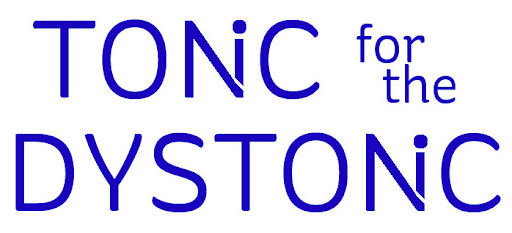What is Dystonia?
Dystonia is a movement disorder that causes the muscles to contract and spasm involuntarily. The neurological mechanism that makes muscles relax when they are not in use does not function properly. Opposing muscles often contract simultaneously as if they are 'competing' for control of a body part. The involuntary muscle contractions force the body into repetitive and often twisting movements as well as awkward, irregular postures. There are approximately 13 forms of dystonia, and dozens of diseases and conditions include dystonia as a major symptom.
Dystonia may affect a single body area or be
generalized throughout multiple muscle groups. Dystonia affects men, women, and children of all ages and backgrounds. Estimates suggest that no less than 300,000 people in North America are affected. Dystonia causes varying degrees of disability and pain, from mild to severe. There is presently no cure, but multiple treatment options exist and scientists around the world are actively pursuing research toward new therapies.
Although there are multiple forms of dystonia and the symptoms of these forms may outwardly appear quite different, the element that all forms share is the repetitive, patterned, and often twisting involuntary muscle contractions.
Dystonia is a chronic disorder, but the vast majority of dystonias do not impact cognition, intelligence, or shorten a person's life span. The main exception to this is dystonia that occurs as symptom of another disease or condition that can cause such complications.
Information supplied by http://www.dystonia-foundation.org/pages/what_is_dystonia_/26.php
